The Complete Guide To Your Emotions: Part 1
Emotions are complicated. In fact, emotions are so complicated that “there is currently no scientific consensus on a definition.” https://en.wikipedia.org/wiki/Emotion
Emotions help us respond to the world around us, and set into motion diverse response systems in our bodies. The experience of an emotion is a process that is influenced by both our evolutionary and personal past.
The process of experiencing an emotion is a 3-step process.
- A trigger occurs.
- You experience the emotion.
- A response occurs, which can be behavioral and/or internal.
Let’s break down this process further to help you understand more clearly.

Emotional Triggers
A trigger is anything that causes an emotional response. Emotional triggers can be very specific and unique to the person, but there are also triggers that can be universal across a wide range of people.
An example of a unique trigger could be the response you have when a family member or somebody you care about calls you. This trigger may mean nothing to an unrelated person. But, to you it may be something very meaningful because of how you already feel about this person.
An example of a universal trigger would be a fire alarm, a car beeping its horn, or a phone ringing. For the most part, these triggers will elicit an emotional response in everybody. That could include annoyance, fear, or excitement. The differences may be in how each person experiences and responds to the trigger.
Internal And External Emotional Triggers
Triggers can be both internal and external. Internal triggers occur from within- often from your thoughts. You can have an emotional experience just by remembering something from the past or planning something in the future- all while you are just sitting there.

Internal Triggers
Many people tend to overthink about things that stress them out, or negative experiences from the past. Often, this overthinking will cause you to continue suffering even after this event has passed, or before it has occurred- all while you have no control over changing the past or predicting the future.
Internal triggers can also be from things such as hormones (especially in women), diet, sleep, and eating habits. Have you ever become irritable when it had been a while since you had food? These triggers can differ in each person, so pay attention to what influences you.
Free Masterclass
External Triggers
On the other hand, an external trigger is something that is experienced by your senses. It could be a sound, smell, sight, physical sensation, taste, or an interaction with another person. Something as simple as seeing your significant other’s facial expression of anger or hearing a slow, ominous sounding song can trigger an emotional experience and response.
External triggers are constantly occurring all around us. At the same time, internal triggers are always at play as well. The average person has 60,000 thoughts per day, so we are vulnerable to having a multitude of emotional experiences just from our own internal experiences.

What Are The Different Emotional Experiences?
Many people tend to see emotions as being good or bad, enjoyable or not, positive or negative. All of these are just judgments and labels that people put on the human experience.
It is completely natural for us to want to describe and judge our experiences. We also have the tendency to want more positive experiences such as happiness, and to avoid more negative experiences such as sadness.
But, this tends to oversimplify the complexity of human emotions. “Negative” emotions are just as helpful as positive ones, and just as important.
Emotions serve as a guidepost for how to respond to a specific situation. Even an emotion such as anger can serve as a motivator for changing something that we don’t agree with, or confronting a person with our opinion.
Sadness is usually an indicator of loss and can help us determine what is important and meaningful to us.
Fear can help us to stay away from dangerous situations such as a bear in the forest, or driving recklessly.
Enjoyment can help us determine the experiences that we would like to have more often.
Psychologists have identified 6 core universal emotions that are experienced across cultures and can be identified with facial expressions.
- Enjoyment
- Sadness
- Fear
- Disgust
- Anger
- Surprise
Additionally, the emotions wheel below has proven to be immensely helpful to my clients in identifying how they are feeling, and processing different emotions.
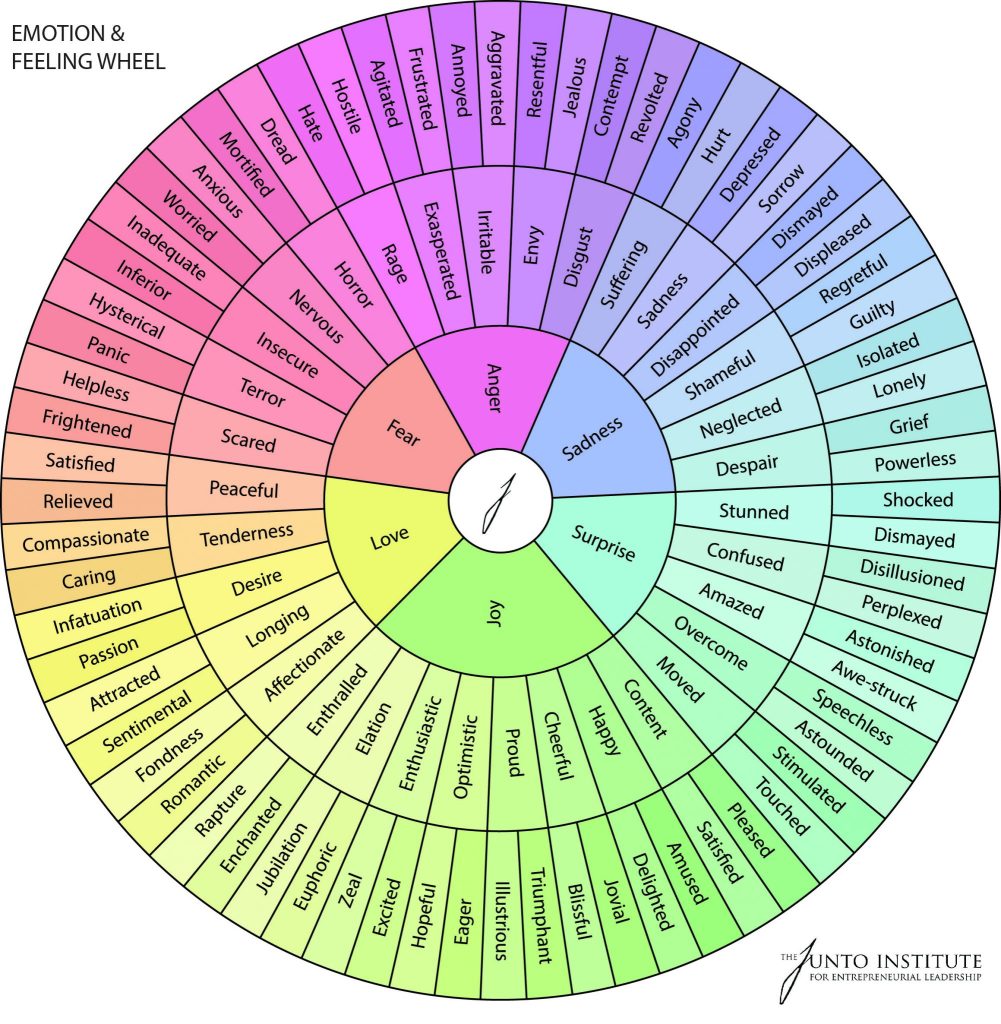
There is so much debate when it comes to defining human emotion because each and every person’s subjective experience is different. The most important part is to be aware of what your experience is, how it is influencing you, what triggered it, and what your response is.
Emotions Are Experienced Physically
Emotions are experienced as physical sensations in the body. Having an awareness of these unconscious sensations and responses that occur can help you have more control over how you respond to various emotions.
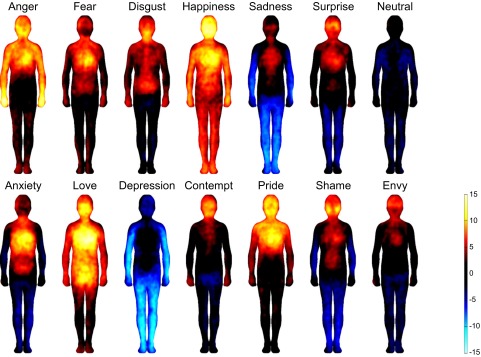
Anxiety can result in increased tension throughout the body, an increased heart rate, and sweaty palms. Excitement can result in an increased heart rate, lightness throughout your body, and a smile on your face. Anger can result in balling your fists up, clenching your teeth, and strong sensations in your head and chest.
All of these physical sensations are preparing you to react in a specific way. Often anger can cause you to want to react physically by throwing things, stomping, or being aggressive. Excitement may cause you to want to jump for joy. And anxiety can trigger the feeling of wanting to escape or run away from a specific situation.
There is literally a chain of events that occurs from the trigger to your response that helps you prepare to take action depending on the specific type of emotion.
These experiences also influence the communication you have with others. Although other people may not always be able to read your mind, you may have a difference in your nonverbal communication such as your facial expressions and voice.
Why Do Different People Have A Different Emotional Experience?
“Everyone experiences a full range of emotion- what we become emotional about is quite distinct, how we become emotional is quite different.”
Dr. Eve Ekman
Your emotions are derived from a combination of the following:
- Your experiences, including how you were raised and the social experiences you had growing up.
- Your genetic predisposition.
- Any work you have done to attempt to manage your emotions, including increasing awareness and working on identifying and decreasing triggers.

How You Grew Up Affects How You Experience Emotions
Each and every person, even if they grew up in the same family, has had a different life experience. You may be treated differently because of the way you look, how you dress, what your perceived intelligence is, what types of interests you have, and so on…
Therefore, the way that you behave and interact with the world around you has an influence on how others react to you. This catalog of how you have been treated your entire life has culminated in how you respond to others and to your individual triggers.
Additionally, the environment that you grew up in at home has an effect on how you learn to react to different emotional triggers. Maybe you witnessed your mother reacting calmly to triggers, while your father blew up from 0 to 100 with anger.
Whether you grew up with a single parent, with another family member caring for you, or in a foster home, each of these experiences and interactions influence how you learn to experience emotions.
Reflection: Take a moment to think back to how your parent(s) or caregiver expressed and responded to different emotions. Is this similar or dissimilar to how you experience and/or respond to emotions? Were there any significant experiences from childhood or adolescence that may have shaped how you currently experience different emotions?
Your Genetics Influence How You Experience Emotions
Biology has an important role to play in your emotional experience. It can sometimes be difficult to completely separate genetics from your experience, but they are both important factors in how you experience and respond to emotions.
It can help to pay attention to factors such as your personality and how you compare to your biological family members. Take your observations with a grain of salt, because it is normal to only look at the things we want to see.
For example, it may pride you to say that you have confidence similar to that of your sister, but you may hesitate to say that you have a short temper similar to that of your mother.
Reflection: What do you consider to be your “personality type”? Do you tend to be shy, fearful, confident, ambitious, etc.? Nothing is black and white! You may react differently depending on the situation, and that is perfectly normal.

Making Efforts To Manage Your Emotions Can Change How You Experience Them
What does it mean to “manage your emotions?” One thing it does not mean is to try to ignore or push away emotions that you don’t want to feel. This will usually result in the opposite of managing your emotions. What you resist, will persist.
The good news is that your emotional experience is not set in stone by your genetics and how you were raised. You can do things to improve your management of different emotions and how you respond to your triggers.
Why Having An Awareness Of Your Emotions Is Essential
The first step to managing your emotions and not letting them have control over you is having an awareness of how you are feeling. As simple as this seems, it is so important to diffuse your emotional experience.
You are not your emotions and they are all temporary. When you can learn to acknowledge and define your emotions just as temporary experiences, the control they have over you diminishes.

How Do You Respond To Your Emotions?
The behavior that occurs after you experience an emotion physically and internally is your response to that emotion.
Although you cannot always control what will trigger you or what your emotional experience is, you do always have control over your response and behaviors.
One important note to remember is that your emotions are not facts. Your emotions are entirely valid- meaning that they are never right or wrong. But, they are not always based on realistic or rational thoughts.
That is why having an awareness of the space between your emotional experience and the response is essential.
Habits such as overthinking can lead to emotional experiences and responses that just cause more suffering and do not solve any problems.
You can increase your awareness to stop being completely controlled by your emotions.
Check out parts two and three below to learn more about how to stop being so reactive to your emotions and how to stop letting your emotions control you.
The Complete Guide To Your Emotions:
Part 2: How To Stop Letting Your Emotions Control You
Part 3: How To Stop Letting Other People’s Emotions Affect You
Free Masterclass
Sources:
- Dr. Eve Ekman: https://www.youtube.com/watch?v=O-1AJPWoL5s
- http://atlasofemotions.org/
- https://www.kairos.com/blog/the-universally-recognized-facial-expressions-of-emotion
- http://blog.thejuntoinstitute.com/the-junto-emotion-wheel-why-and-how-we-use-it
- https://www.ncbi.nlm.nih.gov/pmc/articles/PMC3896150/
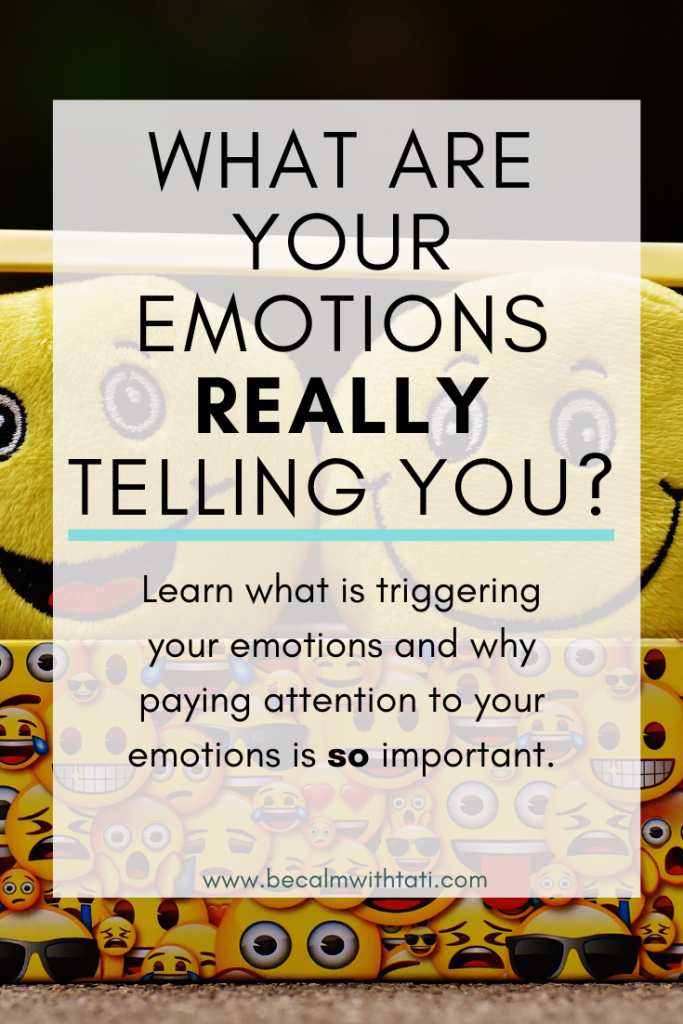
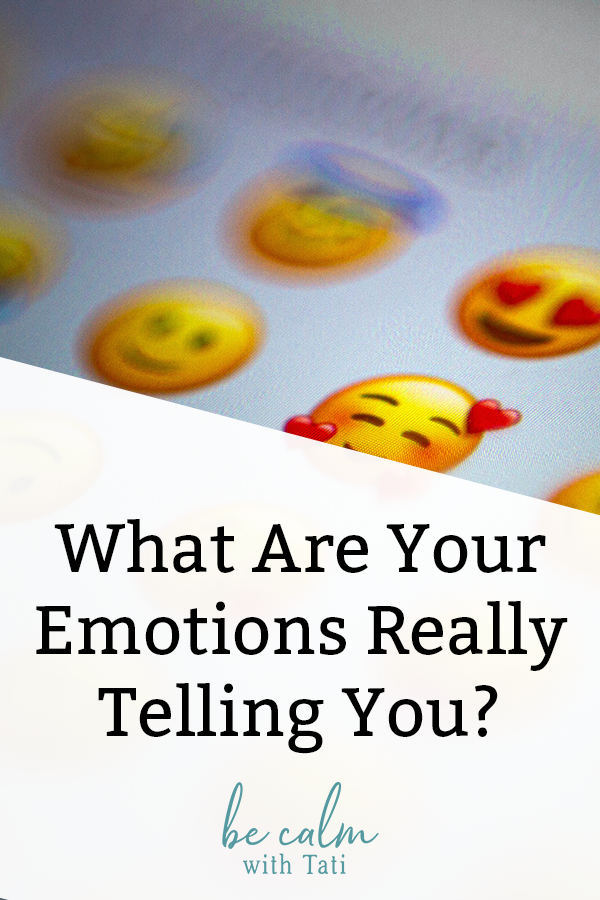
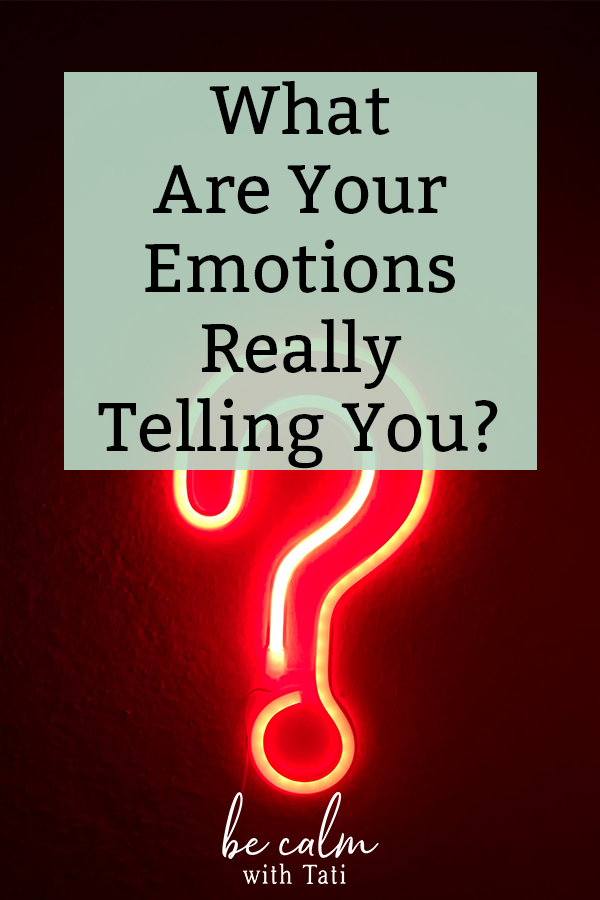




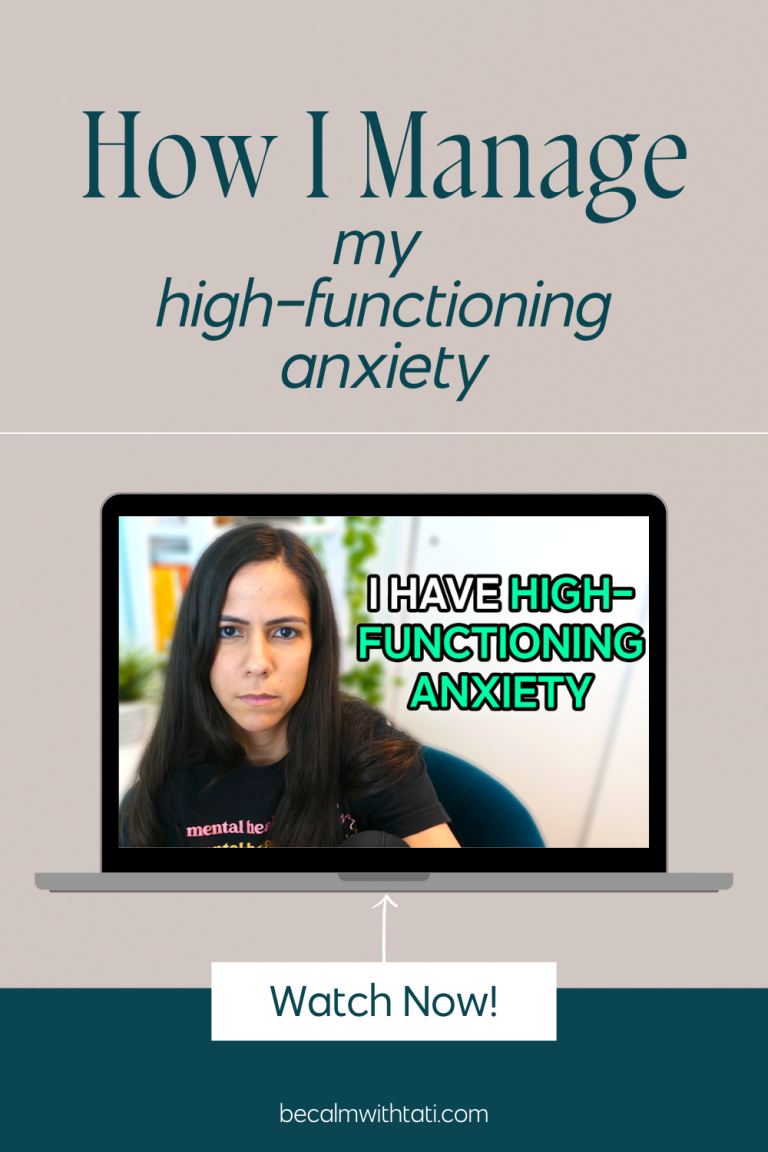
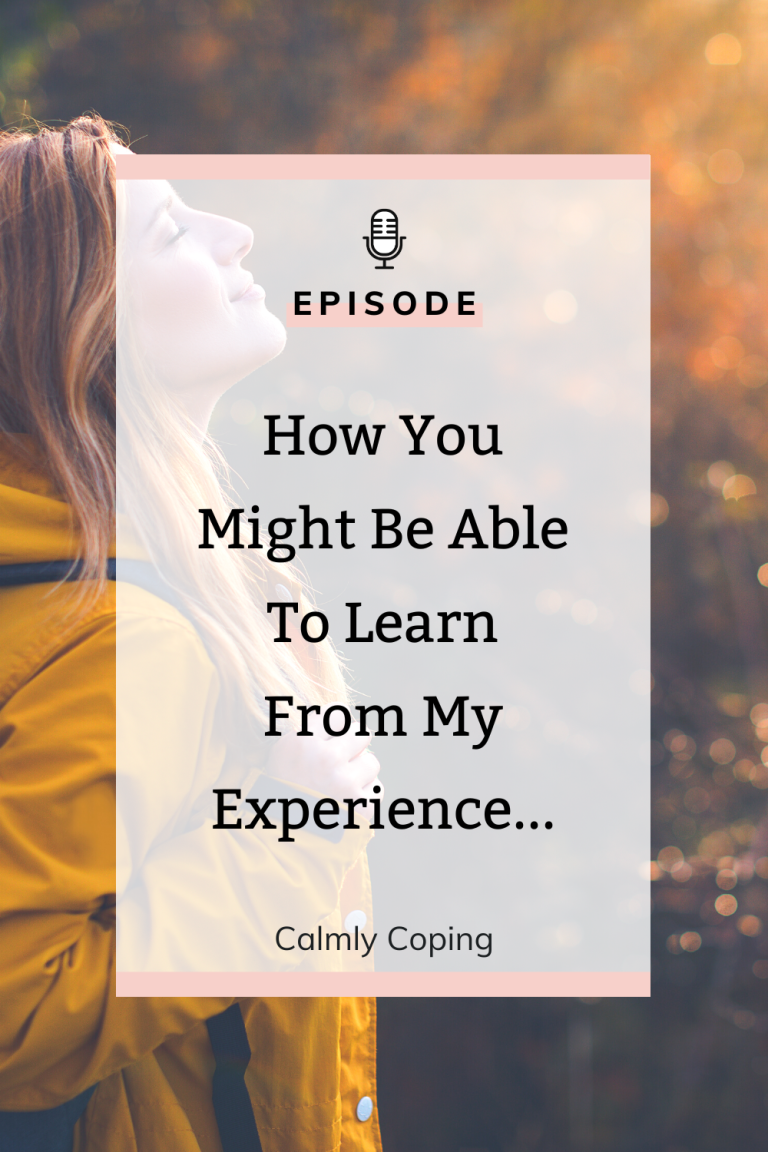
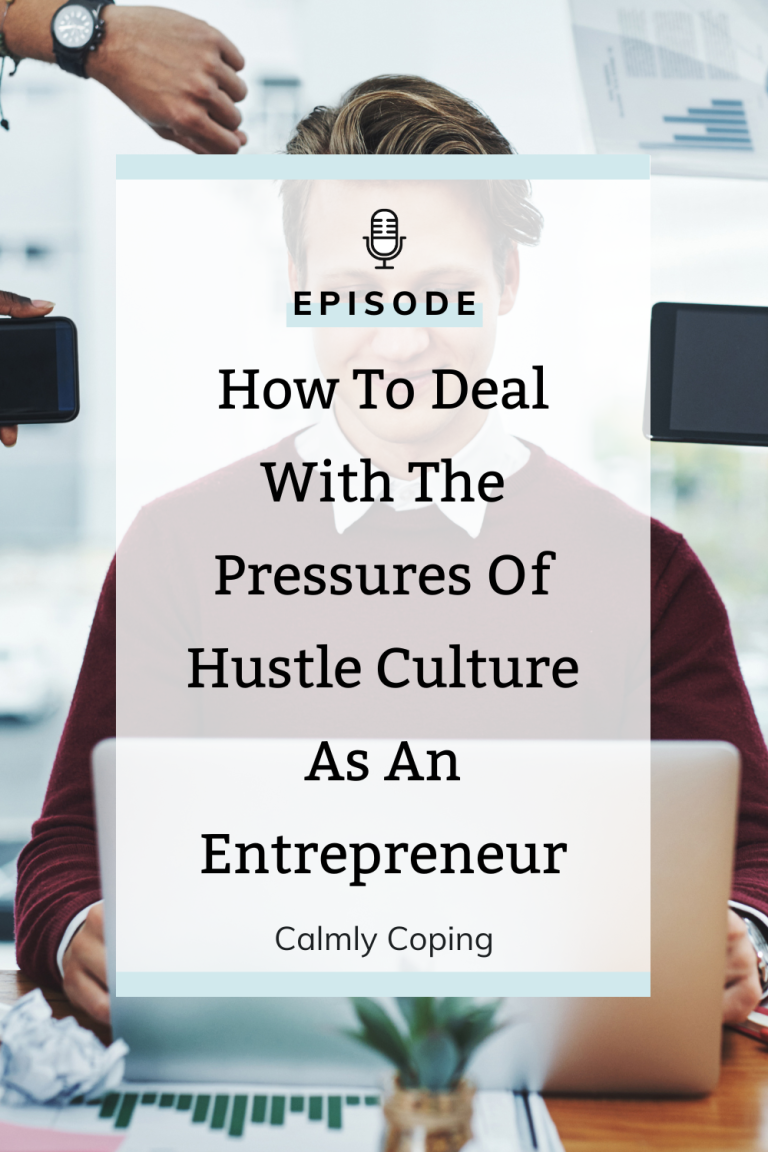
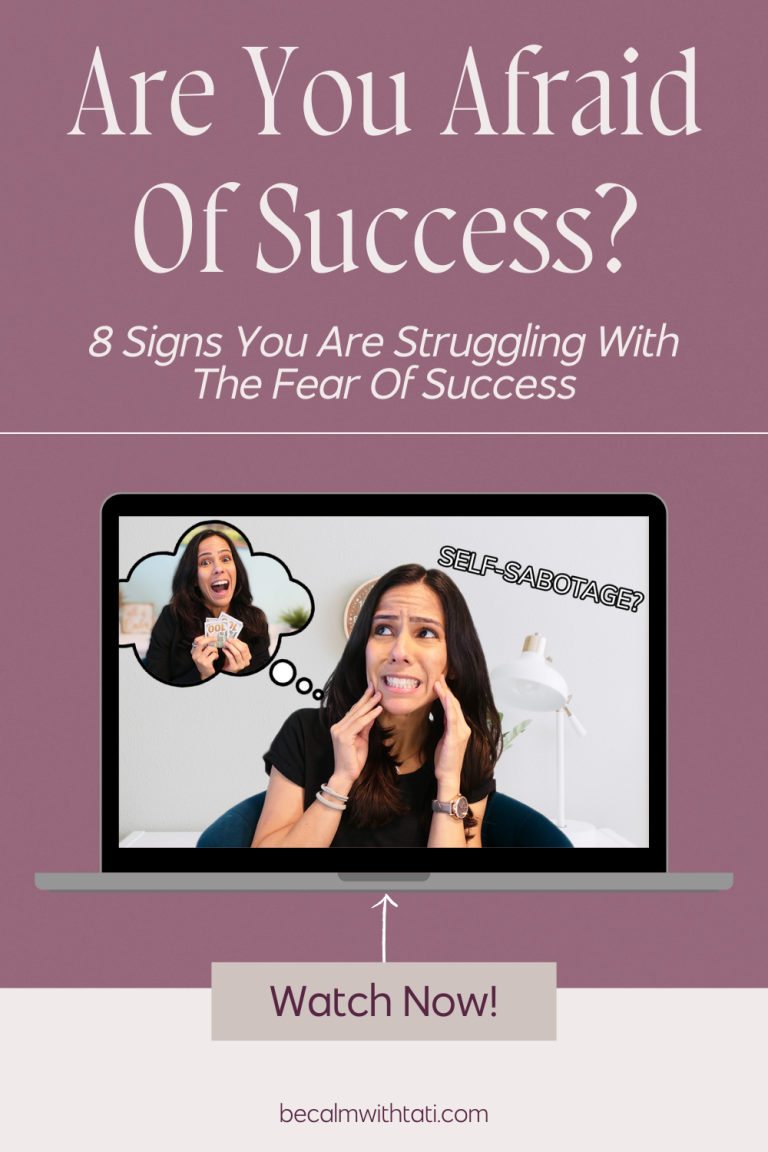






One Comment
Very informative and thoughtful